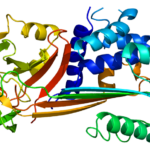After review of the most recent data presented at the CDC’s Advisory Committee on Immunization Practices (ACIP), Dr. Brian Feingold, the medical director of heart failure and transplantation programs at UPMC Children’s Hospital of Pittsburgh, and Dr. Timothy Wong, director of the UPMC Heart and Vascular Institute Cardiovascular Magnetic Resonance Center, said it is likely that the COVID-19 mRNA vaccines (Pfizer and Moderna vaccines) are linked with extremely rare cases of myopericarditis, or inflammation of the heart muscle and lining. The inflammatory heart condition, however, has also been linked to COVID-19 illness and the overall risks of severe illness and death with COVID-19 far outweigh risks from the vaccines.

Dr. Timothy Wong
Myopericarditis tends to develop as a rare side-effect of common, summertime viruses. Cases of myocarditis, which tend to occur most often in children and young adults into their mid-30s, can be severe but are more commonly mild illnesses.
Wong is leading efforts within the Heart and Vascular Institute to track cases of myocarditis in both patients with COVID-19 and in those who received the vaccine to identify any trends which might improve the understanding of this relatively rare phenomenon. He notes that the cardiac MRI program has recently observed several cases of acute myocarditis that occurred within a few days of receiving an mRNA-based COVID-19 vaccine.

Dr. Brian Feingold
“It is important to note that the features noted on cardiac imaging cannot pinpoint the cause of the myocarditis – which range from common bacteria and viruses to environmental toxins,” explained Wong. “So, it remains difficult to prove that the myocarditis observed following vaccination is actually caused by the vaccine or something else. However, the recent report from ACIP suggesting that a link may exist between mRNA vaccination and rare cases of myocarditis means that we will remain vigilant for such cases should they come through our imaging centers.”
Feingold encourages his patients to feel confident in receiving the COVID-19 vaccine. Currently reported cases of myopericarditis after COVID-19 vaccination are very rare, somewhere between 12 and 66 per 1 million people. Nearly all cases reported have been mild, brief illnesses and no deaths have been reported.
“It is a no-brainer that the vaccine is the safer route,” said Feingold. “I remind my pediatric patients and their family members that there are risks with everything in life. These data from the CDC meeting show that the odds of staying healthy are far greater with the vaccine as compared to contracting COVID-19. This is true in young adults as well as teenagers.”









